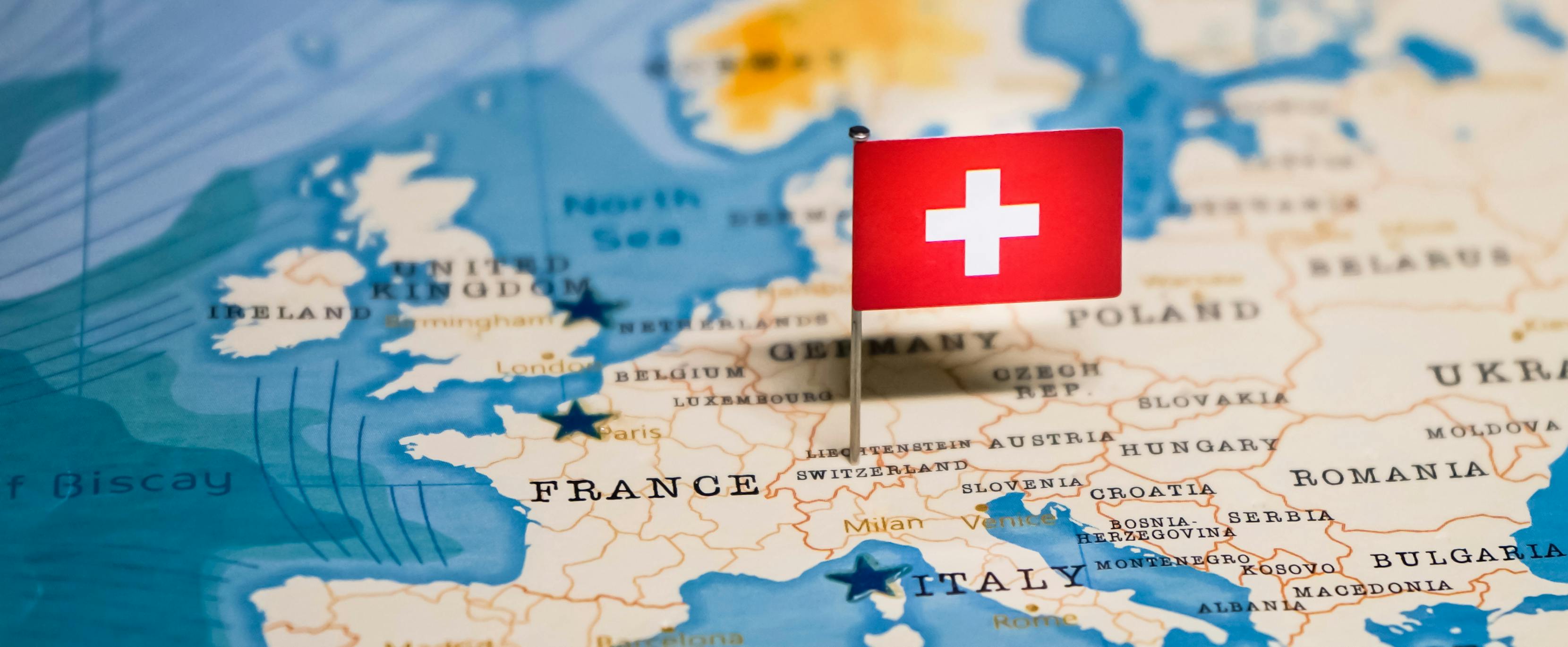
On Wednesday, 13 October the Federal Council was informed of two reports on the topic of security of supply in the electricity sector. The first report (in German) was drafted by the Swiss Federal Electricity Commission (ElCom). It describes measures to increase grid security and security of supply in the short to medium term. Swissgrid contributed its expertise to this report. The second report (in German) analyses the effects of various cooperation scenarios between Switzerland and the EU. The findings of both reports are not surprising. Swissgrid has been stressing the urgency of an electricity agreement with the EU for years.
As the electricity hub at the heart of Europe, it helps to ensure the security of the European supply of electricity.
Physically, Swissgrid is more integrated into European grid operation than any other country. It is connected to its neighbouring countries by 41 cross-border lines. As the electricity hub at the heart of Europe, it helps to ensure the security of the European supply of electricity. ENTSO-E, the European Network of Transmission System Operators, and ACER, the European regulatory authority, have stressed that Switzerland is essential for grid security in Europe. But effective cooperation is at risk. Breaking off negotiations on an institutional framework agreement also takes the possibility of an electricity agreement with the EU off the table. Swissgrid is working towards cross-border cooperation based on private law.
Technical agreements with neighbouring transmission system operators
In March 2019, all continental European transmission system operators signed the Synchronous Area Framework Agreement (SAFA). SAFA contains a collection of principles and rules for operating the continental European synchronous area, for example by defining general rules for cooperation between transmission system operators. Swissgrid is currently in the process of concluding technical agreements with the transmission system operators from the CORE (central Europe) and from the northern Italy capacity calculation regions based on the provisions of the SAFA. These agreements then need to be approved by the national regulators of the transmission system operators. With regard to redispatch, Swissgrid has reached bilateral agreements at all its borders, that is to say with Germany, France, Italy and Austria. With respect to Italy, Swissgrid is also involved in all the regional processes.
Threat of exclusion
In addition, Swissgrid participates in European platforms for control energy. These platforms simplify the procurement of control energy, making the market larger and prices lower. Switzerland is also involved in capacity calculations. But the lack of an electricity agreement places Swissgrid’s access to these important cooperation activities at risk. At this time, it can still contribute to international cooperation for primary control reserves and to International Grid Control Cooperation (IGCC), in which the imbalances between generation and consumption in different regions are corrected. However, participation in platforms such as TERRE, MARI or PICASSO is seriously threatened. Its exclusion could lead to reduced grid stability and higher procurement costs for control energy.
Limits of possible action
At a technical level, Swissgrid is doing everything needed to maintain secure system operation. However, private-law agreements between transmission system operators are not an adequate substitute for an electricity agreement in the long term. Swissgrid is reaching the limits of possible solutions at a technical level. As a result, an electricity agreement with the EU remains the most efficient and effective solution for ensuring a reliable supply of energy in Switzerland.
Without framework agreements, the EU is not prepared to enter into an electricity agreement. It therefore seems appropriate to target a purely technical agreement without the economic aspects. This could regulate issues relevant to grid security. Such an agreement is technically and conceptually feasible with appropriate political involvement. It is primarily dependent on the will of the EU to actually enter into negotiations for such an agreement.




